AlgaePARC is a prominent multidisciplinary research initiative seamlessly integrating the microalgae and cyanobacteria process chain. Guided by economic and sustainability assessments, our research program navigates both biological and engineering aspects in cultivation and biorefinery. From laboratory to pilot scales, we develop technologies, transitioning from conceptualization to establishing competitive and innovative processes and products. AlgaePARC's unique approach bridges fundamental research with practical applications, contributing to a significant fifteen-year roadmap (2010-2025) for industrial algae and cyanobacteria production. Our focus spans commodities, emphasizing cost reduction and scale-up, and higher value products, addressing challenges in reliability, product quality, quantity,and market introduction. Employing a multidisciplinary approach, our research prioritizes efficient resource utilization, energy minimization, and nutrient recycling through reactor design and process optimization. Concurrently, our exploration of cell biology aims to create robust strains using molecular biology, mutagenesis, and laboratory evolution. Implementation plays a pivotal role in linking fundamental research to practical applications, focusing on process scale-up, biorefinery, and chain analysis to advance a sustainable production chain.
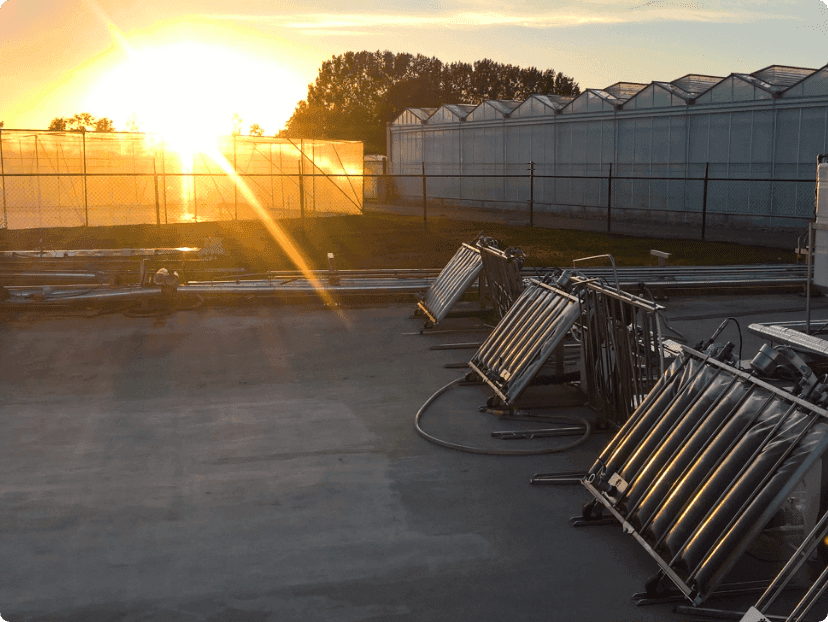
At AlgaePARC, we work on a large multidisciplinary research program within a fifteen year-roadmap (2010-2025) for industrial algae and cyanobacteria production. In this program both commodities and higher value products are covered. For commodities we focus on reduction of production costs and scale-up while for high values compounds the challenges are on reliability on product quality and quantity and market introduction which requires an increase of product range and volume.
With a multidisciplinary approach, we work on efficient use of resources (light, carbon dioxide, nitrogen and phosphorus) while reducing energy input and recycling nutrients. This is done by developing and optimizing reactor design and process strategies. In parallel to this we study the cell biology to develop robust strains which can accumulate specific products. Techniques on molecular biology, mutagenesis and laboratory evolution are being developed and used. Last but not the least, implementation bridges the fundamental research to applications. We look at process scale-up, biorefinery and chain analysis, with the aim to develop a sustainable production chain.
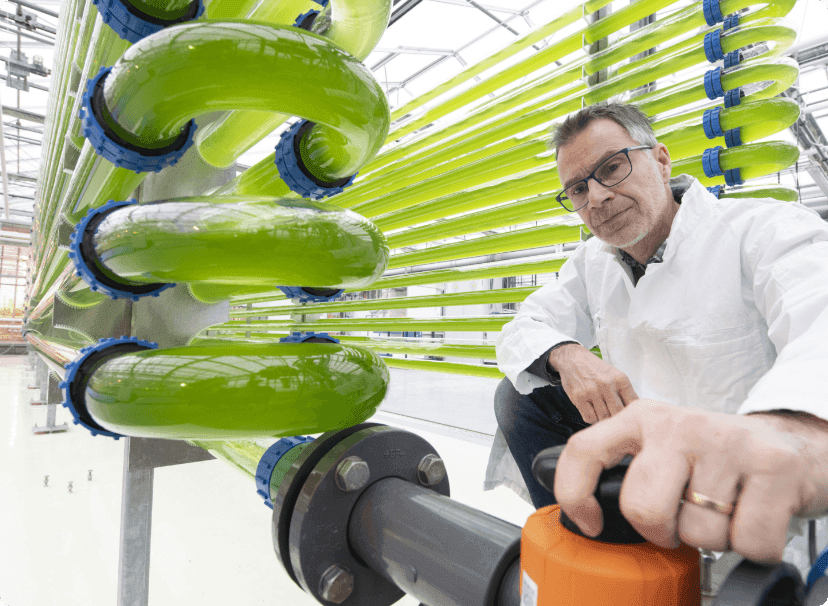
AlgaePARC 2.0
The REACT project
AlgaePARC as an innovation hub
GM facilities
Biorefinery unit, expansion AlgaePARC
New systems (FM panels) outdoors
Construction financed by the Province of Gelderland and the Ministry of Economic Affairs, which enabled large public private partnership projects
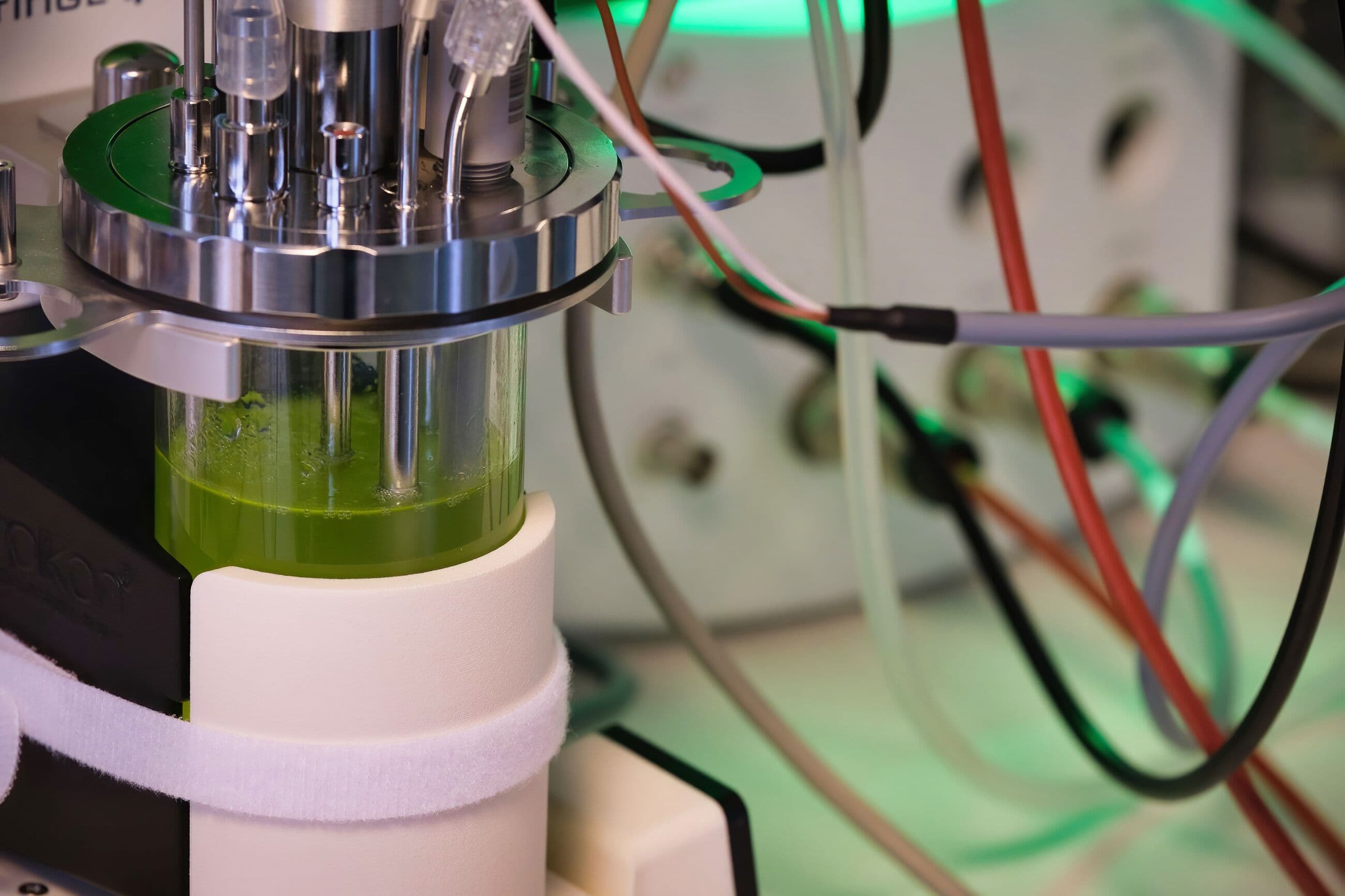
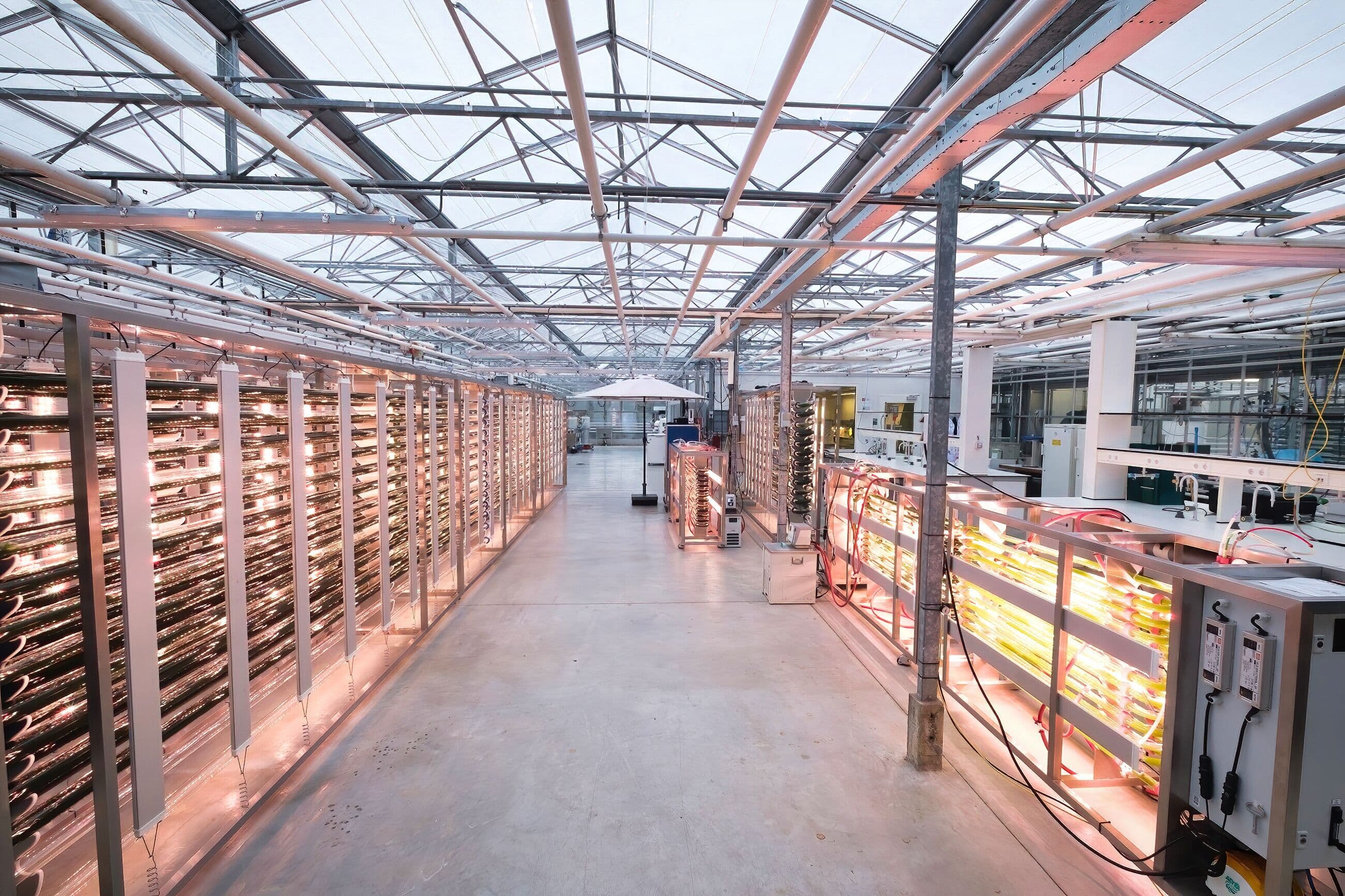

Microalgae are microscopic single-celled algae that are photosynthetic, which means they convert light energy into organic compounds through the process of photosynthesis. They are found in a variety of aquatic environments, including freshwater, saltwater, and brackish water, and are considered one of the most diverse groups of organisms on Earth, with over 100,000 known species. Microalgae play a vital role in the global carbon cycle, as they are responsible for a significant amount of the oxygen produced on our planet and are also capable of capturing and storing carbon dioxide from the atmosphere through photosynthesis. They are an excellent source of nutrients and are used in a variety of applications, including food and feed production, pharmaceuticals, cosmetics, and biofuels.
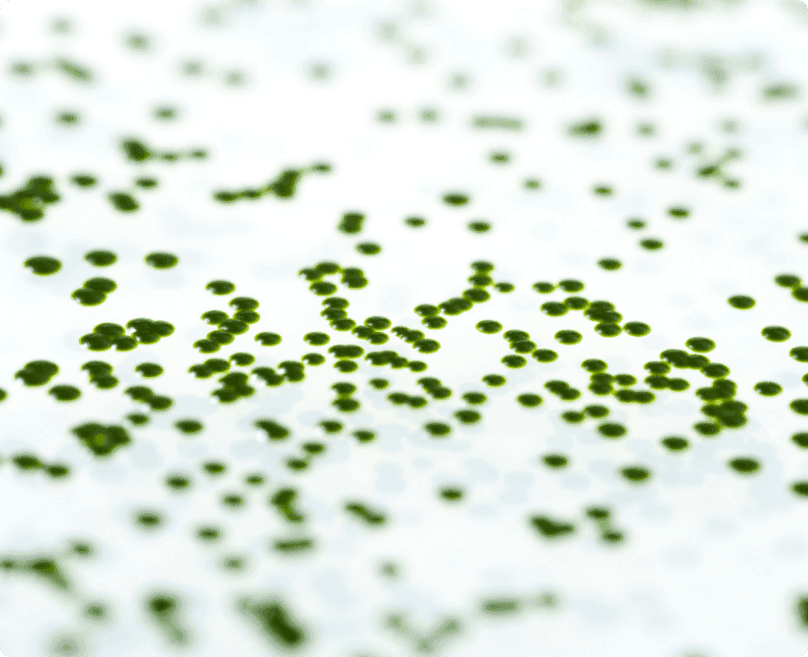
Distinguishing themselves from traditional crops, microalgae offer notable advantages, including higher biomass yield per unit area without the need for fertile land. Many species showcase salt tolerance, enabling growth in seawater. Harnessing the photosynthetic capabilities of microalgae and cyanobacteria presents an avenue to reduce dependence on fossil fuels, fostering a more sustainable future in food and fuel production. Sunlight- driven carbon dioxide conversion into biomass by microalgae contributes to over 75% of the global oxygen essential for animals and humans. Some microalgae can even grow on sugars in the absence of light through
fermentation.
The product range derived from microalgae and cyanobacteria spans fine chemicals like pigments and polyunsaturated fatty acids, along with bulk applications such as starch, protein, and lipids. Ongoing research has uncovered over 15,000 new chemical compounds in algae, enriching the repertoire of products derived from these organisms.


Seaweeds, pivotal in Asian cuisine and increasingly embraced in the West, serve as a sustainable resource for food, fuel, and platform molecules. In Europe, their utilization spans food (36%), food additives (15%) for supplements, nutraceuticals, and hydrocolloid production, and animal feed (10%), with a cumulative market value of US$ 6 billion annually.
Current practices often lean towards whole-biomass use or single-product extraction, resulting in the disposal of over 90% of biomass as waste. Realizing seaweeds’ full potential requires simultaneous recovery and purification of vital components like proteins, pigments, essential oils, polysaccharides, and antioxidants. This holistic approach is crucial for unlocking diverse benefits and promoting sustainable seaweed utilization across industries.
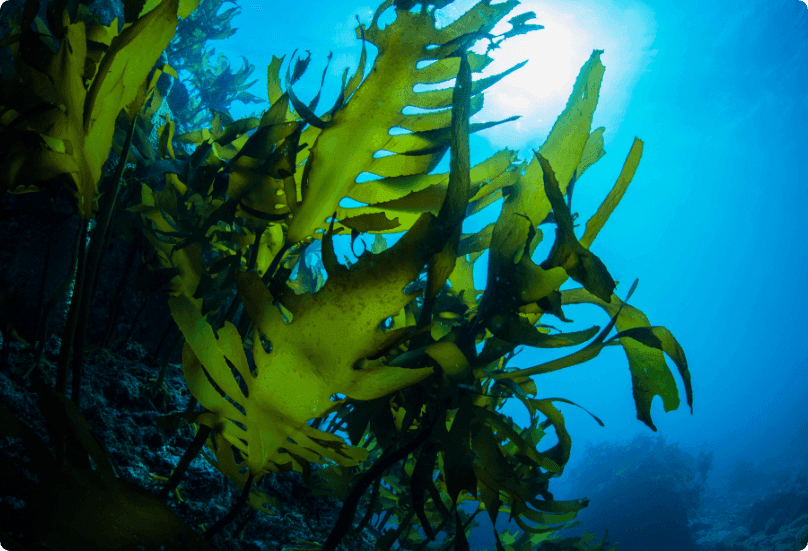
Current extraction processes for seaweed face limitations, unable to extract multiple products simultaneously without degradation. Innovative valorization methods hold the potential to transform the seaweed industry, providing diverse sources for food, health, and personal care ingredients. Additionally, seaweeds offer an eco-friendly solution for carbon sequestration, reducing the reliance on arable land, pesticides, and fossil-based fertilizers, contributing to a quarter of annual global carbon emissions from conventional agriculture.
Seaweed cultivation is on the rise in Europe, with Seaweed for Europe projecting the EU’s potential to achieve eight million tons of farmed seaweed production by 2030. Several countries, including the Netherlands, are actively planning large-scale seaweed cultivation, potentially dedicating 400 sq km of North Sea territorial waters. Leading the way, Germany and the Republic of Ireland are actively involved in these progressive developments.
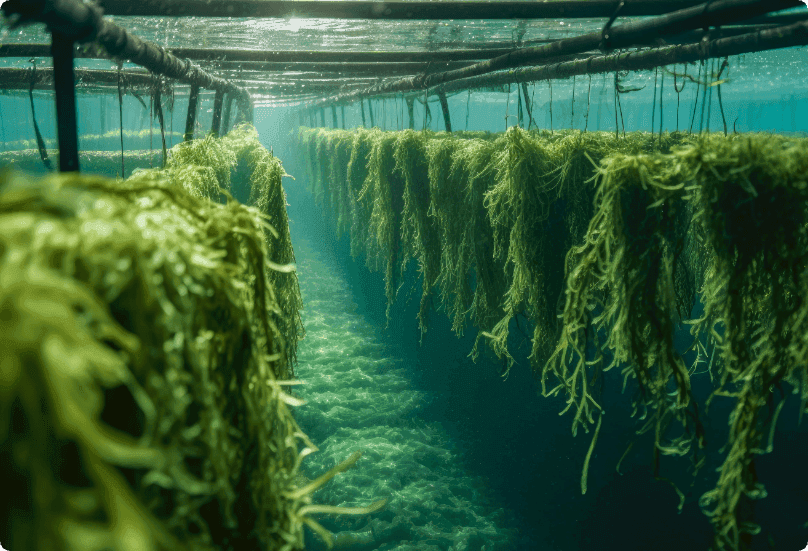
We’re a dynamic group of individuals who are passionate about what we do.

Associate Professor ( Tenure Track)
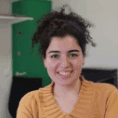
Assistant Professor ( Tenure Track), Study advisor

Research Assistant

Project manager

Assistant Professor ( Tenure Track)
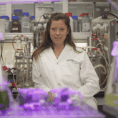
Business Developer Manager
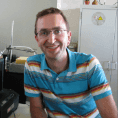
Assistant Professor

Professor
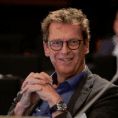
Professor/Chair Bioprocess Engineering
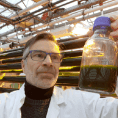
Research Assistant

Research Assistant

Reserach Assistant